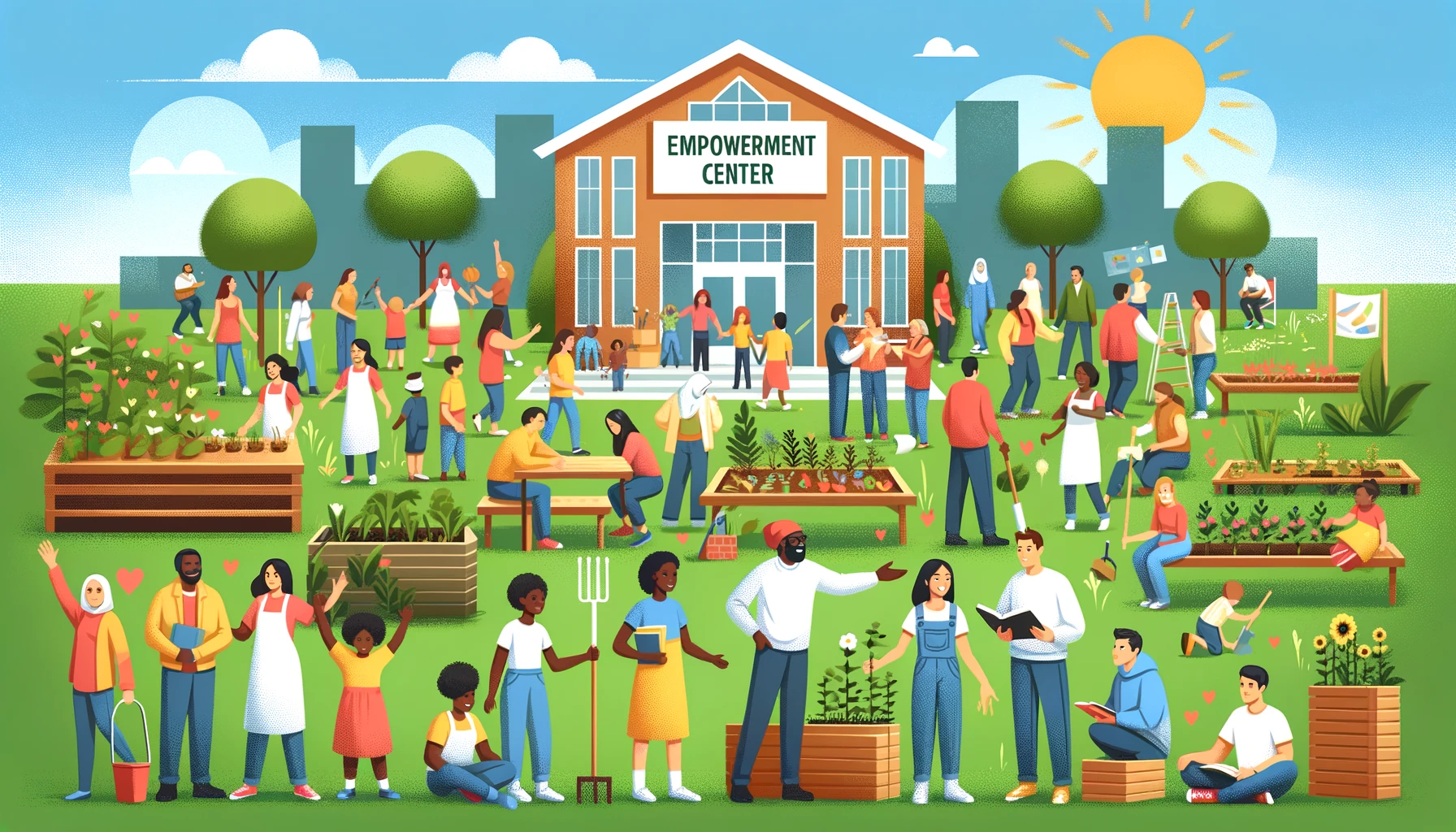Community empowerment is a powerful force that can drive social change and improve the quality of life for individuals within a community. It involves the process of enabling individuals and groups to gain the skills, knowledge, and confidence they need to take control of their lives and make positive changes. This transformation is not just about economic development; it’s also about social, cultural, and political progress. By working together, communities can create a more inclusive, equitable, and sustainable future for everyone.
Understanding Community Empowerment
Community empowerment is multifaceted and can take many forms. At its core, it is about giving people the tools and opportunities to participate fully in society. This can include education, access to healthcare, economic opportunities, and the ability to influence decisions that affect their lives. Empowered communities are resilient, adaptable, and better equipped to face challenges.
The Role of Education
Education is one of the most critical components of community empowerment. By providing access to quality education, communities can break the cycle of poverty and create opportunities for future generations. Education empowers individuals by giving them the skills and knowledge they need to succeed in the workforce and contribute to their communities. Programs that focus on literacy, vocational training, and higher education are essential in building a solid foundation for community empowerment.
Economic Empowerment
Economic empowerment involves providing individuals with the resources and opportunities they need to improve their economic status. This can include access to jobs, financial services, and entrepreneurship opportunities. When people have the means to support themselves and their families, they can invest in their communities and help drive economic growth. Microfinance initiatives, cooperatives, and local business development programs are examples of economic empowerment strategies that can transform lives.
Social and Cultural Empowerment
Social and cultural empowerment is about recognizing and valuing the diversity within a community. It involves promoting social inclusion, cultural preservation, and the participation of all community members in social and cultural activities. This type of empowerment helps build strong, cohesive communities where everyone feels valued and respected. Programs that support cultural events, language preservation, and social clubs can play a significant role in fostering social and cultural empowerment.
Political Empowerment
Political empowerment is about giving people a voice in the decisions that affect their lives. This includes encouraging civic participation, advocating for policy changes, and ensuring that all community members have the opportunity to engage in the political process. Empowered communities can hold their leaders accountable and work towards policies that benefit the entire community. Grassroots organizing, voter education, and advocacy campaigns are effective ways to promote political empowerment.
Health and Well-being
Access to healthcare is a fundamental aspect of community empowerment. When individuals have access to quality healthcare, they can lead healthier, more productive lives. Community health programs, preventive care initiatives, and health education are essential components of this empowerment. By addressing health disparities and promoting wellness, communities can improve their overall quality of life.
Examples of Community Empowerment in Action
1. The Harlem Children’s Zone: This initiative in New York City focuses on providing comprehensive support to children and families in Harlem. It includes educational programs, health services, and community-building activities. By addressing multiple aspects of community life, the Harlem Children’s Zone has become a model for community empowerment.
2. Grameen Bank: Founded by Muhammad Yunus, Grameen Bank provides microloans to people in rural Bangladesh, helping them start small businesses and improve their economic status. This financial empowerment initiative has lifted millions of people out of poverty and demonstrated the power of microfinance.
3. The Barefoot College: Located in India, Barefoot College empowers rural communities by training women to become solar engineers, healthcare workers, and educators. By focusing on skills training and sustainable development, Barefoot College has transformed countless lives and communities.
The Importance of Community Empowerment
Why Community Empowerment Matters
Community empowerment is essential for creating a more equitable and just society. When individuals and groups are empowered, they can take control of their destinies and contribute meaningfully to their communities. This empowerment leads to increased resilience, improved quality of life, and stronger social cohesion.
Critical Benefits of Community Empowerment
- Economic Growth: Empowered communities can drive economic growth by fostering entrepreneurship and creating job opportunities. Economic empowerment initiatives can help reduce poverty and promote sustainable development.
- Social Inclusion: Empowerment promotes social inclusion by ensuring that all community members have a voice and can participate in community life. This leads to more robust, more cohesive communities where everyone feels valued.
- Improved Health: Access to healthcare and health education empowers individuals to lead healthier lives. Community health programs can address health disparities and promote wellness, leading to improved overall health outcomes.
- Educational Advancement: Education is a critical component of empowerment. By providing access to quality education, communities can break the cycle of poverty and create opportunities for future generations.
- Political Participation: Empowered communities can influence policy decisions and hold their leaders accountable. Political empowerment ensures that all community members have a say in the decisions that affect their lives.
How to Empower Your Community
- Support Education Initiatives: Invest in programs that provide access to quality education, from early childhood education to adult literacy and vocational training.
- Promote Economic Opportunities: Support local businesses, provide access to micro-loans, and create job training programs to help individuals improve their economic status.
- Foster Social Inclusion: Encourage community participation and promote cultural preservation by supporting social clubs, cultural events, and inclusive activities.
- Advocate for Healthcare Access: Support community health programs, preventive care initiatives, and health education to improve access to quality healthcare.
- Encourage Civic Participation: Promote voter education, grassroots organizing, and advocacy campaigns to ensure that all community members can participate in the political process.
By focusing on these areas, communities can empower their members and create a more inclusive, equitable, and sustainable future for everyone.
Conclusion
Community empowerment is a transformative process that can change lives and create more robust, more resilient communities. By focusing on education, economic opportunities, social and cultural inclusion, political participation, and health, communities can empower their members and drive positive change. Through collaborative efforts and support, we can build a future where everyone has the opportunity to thrive and contribute to their community. Let’s work together to empower our communities and transform lives for the better.

